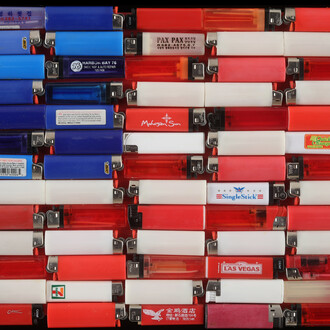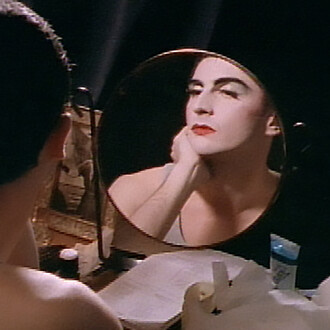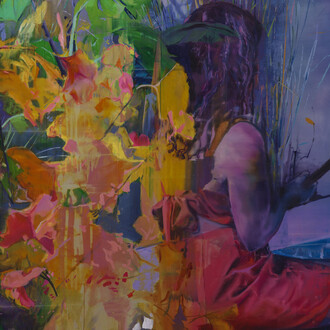Hugo Galerie is pleased to present Un Nouveau Jour, a solo exhibition of Sandrine Paumelle’s altered and alternative landscapes. As if alchemically derived from their original photographs, her mixed media works transform what is known and real into something far more mythical.
Photography has long been considered a captured observation of the world and used to document our surroundings. It is often more trusted as a source of actuality than other art forms. Painting, for instance, must first travel through the artist before arriving on the canvas. But photography can avoid mediation. Paumelle’s subversion of this commonly held expectation makes her artwork all the more provocative. What portion is real? What part is applied? Subtracted? Manipulated?
Her physically distorted images create new truths. The painted and scraped photographs become marred marvels. Each landscape manifests through the misty lens of memory, each still life through the hazy layers of a dream. The artist’s treatment of light obscures time itself. We are left wondering whether we are witnesses to the dewy dawn, sparkling midday, or sultry sunset. Or are we witnesses at all? Is the familiarity of her countrysides and tabletops merely the power of suggestion? Paumelle challenges the rigidity of truth, exposing its vulnerability in a way that mimics the fragility of our known world and environment.
The title of the exhibition, Un Nouveau Jour, or A New Day, echoes this flickering duality. A New Day is somewhat of a phenomenon, able to act as both a singular and transcendental event as well as a literal, quotidian recurrence. Paumelle’s body of work similarly straddles borders and defies distinctions: heavenly and haunted, real and imagined, past and future.
This is the epitome of worldmaking—taking something with just enough truth to feel trustworthy, and expanding it. Paumelle presents life through a foggy window, dually revealing and reflective, effectively filling in the gauzy gaps in clarity with our own versions of veracity. Her gossamer veil blurs the context of each vignette and encourages viewers to supply their own, causing the otherwise mundane to become personal. Her oblique perspective produces a mystical experience and makes the universal unique. In Paumelle’s hands, the world around us shimmers with a spirituality that is our very own.
















